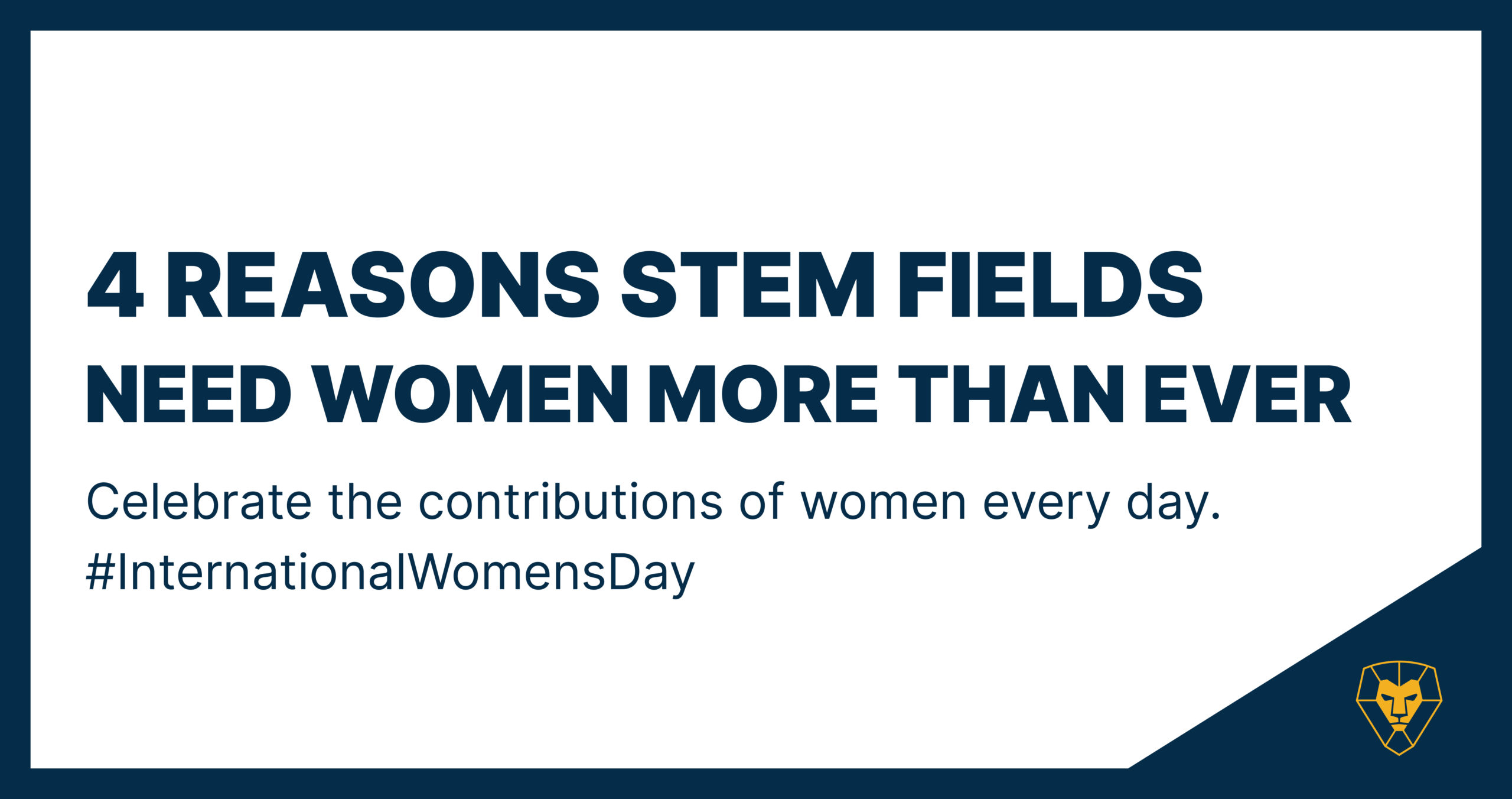
Since March is Women’s History Month, and today is International Women’s Day, it seems only natural to turn the topic to women in the STEM (Science, Technology, Engineering and Mathematics) fields.
There’s a lot to celebrate, but also a lot of progress still to be made. While the U.S. Bureau of Labor announced in (pre-pandemic) 2020 that women made up 50.04% of the workforce, they hold only 27% of all STEM-related jobs—and only 15% of engineering positions.
The reasons for such discrepancies compound on each other to create barriers for women in the industry: peer pressure and waning interest as girls get older; a lack of role models, parental support and access; downright discouragement and discrimination that unfortunately exists; or just a general misconception of how STEM work looks in the real world.
However, there are just as many reasons why STEM fields need women more than ever before. Here are just a few:
- Women rock.
Truth. Women are rock stars at getting things done (or GTD, for the extra efficient), probably in part because society traditionally puts more on their plates. They do two more hours of “unpaid” work every day than men in the United States. Breakfast made, laundry folded, kids off to school, bills paid, emails answered, meetings scheduled and a clear plan in place for a productive workday—all before 9 a.m. What company, STEM or otherwise, wouldn’t want this kind of methodical efficiency working for them?
On top of this, women generally possess the “soft” skills that STEM-based companies or groups can sometimes lack (but will always need), including emotional intelligence, the ability to collaborate and empathize. Add these to a solid set of technical skills and you’re looking at someone you’d want on your team—or better yet, in management.
- Diversity matters.
Whether it’s gender, race, culture, life experience or any number of other factors, diversity in general breeds innovation—infinitely essential to the growth of the technology and engineering fields. With women’s unique perspectives given equal consideration, doors swing wide open: problems get examined from various angles; creative solutions emerge; new ideas abound. Everybody wins when everyone’s included.
- Representation begets equality.
Under-representation leaves groups of people without a voice, which leads to disparity in all walks of life. Medical research, insurance coverage, laws and policies, educational opportunities, life-saving technology—if any minority group isn’t heard, they risk being forgotten. Previous generations lived through times in which women didn’t have equal (or any) representation in certain aspects of life—it’s not something anyone wants to go back to.
- Lucrative jobs are waiting.
Currently, millions of STEM occupations go unfilled, and the U.S. Department of Labor Statistics predicts huge growth in tech professions between now and 2030. On top of that, STEM-related jobs out-earn non-STEM occupations by 12% to 30%. High demand and high earnings make for an amazing opportunity for anyone interested in working in these fields, but especially for women and other minorities as companies seek out and embrace diversity.
We Value Diversity at Liongard
One of our Core Values here at Liongard is to Listen and Learn. Everyone has different experiences, backgrounds, cultures and views that makes their perspectives unique, valuable and worth learning from. Liongard surely wouldn’t be where we are today if we didn’t listen and learn from everyone, women and men, on our team. We’re proud to provide the same opportunities to learn, contribute and lead to all of our team members, and help advance the IT industry as a whole by celebrating diversity.
If you want to work for an innovative tech company that values all of its people, come work for Liongard—we’re hiring!